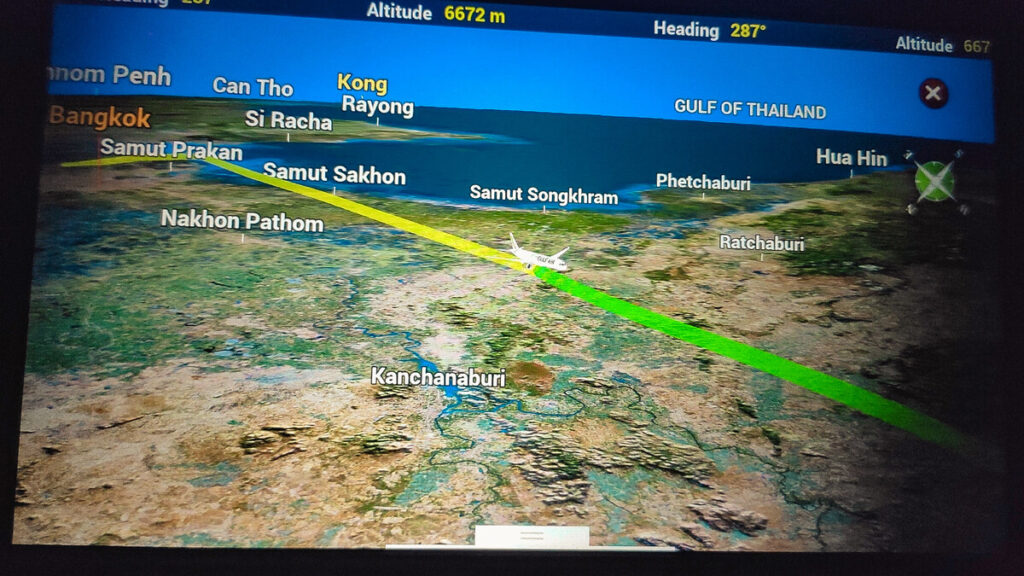How To Get Over Jet Lag When You Get Home?
Travel is a passion of mine, but beating jet lag can often be a cumbersome duel. Navigating through the symptoms of jet lag can sometimes be a true battle. The sheer volume of suggestions available when you search ‘how to get over jet lag’ might feel overpowering.
The breadth of advice made me wonder whether I should curate a post featuring some tips for overcoming jet lag after trip. However, after some initial doubts, I chose to pen down my thoughts, predominantly driven by the number of inquiries I receive on this subject from my social media followers and friends.
How To Get Over Jet Lag in 8 Easy Steps
Flying significantly east to west and vice versa can not only evoke anxiety but also incite jet lag insomnia symptoms. You’re familiar with the sensation, right?
As soon as you exit the plane, you’re immediately hit with feelings of disorientation, confusion, a lack of discernment, and frequently a headache and nausea.
Imagine combatting these symptoms for days on end as you endeavor to acclimate to a new surrounding. It’s simply unthinkable after enduring a long-haul flight.
Jet lag is most common when your time zone shift is more than three hours. Destinations with a time difference of over six hours from local time can often unsettle your body’s circadian rhythm. This disruption happens when your sleep has been inadequate and your levels of sodium and minerals are depleted.
You could potentially get over jet lag by swiftly adjusting to your new time zone. Implementing certain practices such as introducing supplements into your routine and exposing yourself to daylight might prove beneficial.
Jet lag is a result of rapid travel across multiple time zones which disrupts your body’s regular rhythm, typically for a brief duration.
Given time, your body will recalibrate to its new time zone, but there are methods that can expedite this process and alleviate symptoms of jet lag.
Is Jet Lag Real?
Yes, jet lag occurs when your inherent circadian rhythm – the internal biological clock that dictates your sleep and wake cycles – is disrupted due to travel across different time zones.
Various cues such as daylight, body temperature, and hormonal fluctuations, which your body relies on to maintain its internal rhythm, are thrown off balance during travel.
Common symptoms associated with jet lag comprise:
- Headaches;
- Exhaustion;
- Insomnia;
- Difficulty focusing;
- Mood fluctuations;
- Loss of appetite;
- Gastrointestinal issues like constipation and diarrhea.
Jet lag tends to be more pronounced when traveling from west to east – its effects may linger longer than if you’re traveling westbound.
My latest trip to China was a stark reminder that traveling from west to east often triggers more severe jet lag symptoms than the reverse journey.

After months of unhindered travel, I finally came face-to-face with the reality of jet lag.
Transversing the vast expanse of the Eurasian continent to reach China (a shift of +6 hours from Germany) wreaked havoc on my internal body clock.
The direction of your travel can significantly increase the severity of jet lag symptoms.
Flying eastbound is notably challenging due to the near impossibility of nudging your body to operate as though it’s midday when it should be sound asleep.
Under typical circumstances, you sleep for seven to nine hours a night, but long-distance travel disrupts this circadian rhythm.
Consequently, you find yourself heading to bed when it ought to be lunchtime—enter a familiar adversary, jet lag.
Having demystified the cause of jet lag, what measures can one adopt to counter it post-vacation?
Here are some effective ways to overcome jet lag that I’ve personally utilized—tactics that work.
How Long Does It Take Your Body to Get Over Jet Lag
The human body typically takes a few days to over a week to completely get over international jet lag. The recovery time largely hinges on the number of time zones traversed.
Implementing these tips for overcoming jet lag after trip should make the recovery less strenuous.
It’s likely you won’t experience any disruptions to your circadian rhythm when crossing fewer than three time zones. However, for every hour of time zone change exceeding three, expect a day’s worth of jet lag.
Although it’s unfeasible to eliminate symptoms completely, you have the ability to manage the causes of jet lag and curtail their duration. As a result, jet lag shouldn’t pose a threat to restoring balance and routine after a trip.
7 Best Tips to Get Over Jet Lag
1. Adapt to Your New Time Zone
When traveling across multiple time zones, the first step is to gradually adjust your sleep-wake patterns to align with the destination’s time zone.
It is essential to acclimate yourself to the new time zone slowly.
Ideally, a few days before your journey, consider going to bed a few hours earlier if you are flying east.
Conversely, if traveling west, try staying awake for an extra one or two hours.
Additionally, adjust your waking time accordingly based on the time zone you are traveling to.
For instance, if you are flying west from Berlin to New York, start adapting to the new time zone by modifying your sleep schedule six days before your flight.
Beginning six days prior to departure, aim to sleep an hour earlier each day.
When returning from New York to Berlin, reverse the adjustment process by going to bed an hour later each day for six days to readjust to your home time zone.
It is advisable to be mindful of your flight booking timing.
Arriving in the afternoon or evening can facilitate a smoother transition to the new time zone, allowing you to fall asleep more easily on the first night.
2. Don’t Leave Home Tired
Yes, it might seem enticing to procrastinate on packing until the eleventh hour, leaving you scrambling to tidy up your home, gather last-minute items, and check in for your flight.
Sound familiar?
However, what you should actually do is prepare your luggage a few days in advance, depart well-rested, and ensure a more relaxed and carefree journey.
The essence of getting over jet lag revolves around inner peace and being in sync with yourself.
Overcoming jet lag naturally requires decluttering your mind.
Maintaining composure, well-being, managing cortisol levels, and embracing a positive mindset lead to favorable outcomes.
For instance, focusing on positive outcomes proves crucial when selecting flights that align with your sleep routine.
Enhance your chances of success by proactively choosing your seat on the plane at the time of booking your ticket.
3. The Jet Lag Diet. What Foods to Overcome Jet Lag
While the presentation of airplane meals in fancy boxes and wrappers may seem delightful, it can also impact your jet lag. Surprising, isn’t it?
Despite the lack of nutritional information, airplane food often lacks in healthiness.
Packed with fast carbohydrates, heavily processed oils, and undisclosed additives, it can leave you feeling sluggish and fatigued.
Instead of relying on airplane food, I suggest nourishing your body with wholesome options like fruits and vegetables.
Electrolytes, comprising magnesium, potassium, and chloride, play a crucial role in managing your body’s water levels.
Replenishing your electrolytes can be beneficial if you are dehydrated.
A diverse diet of nutritious foods like vegetables and fruits can provide an adequate amount of electrolytes.
Potassium-rich foods such as bananas, avocados, and spinach, along with magnesium sources like nuts, beans, and seeds, can help maintain electrolyte balance in your body and overcome jet lag naturally.
Scheduling your meals is another effective strategy to get over jet lag.
Similar to adjusting your sleep schedule, aligning your eating habits with the new time zone is crucial for optimal bodily function.
Resist the urge to eat breakfast based on your body’s internal clock while onboard, and avoid forcing yourself to eat if not hungry.
Instead, prioritize having a substantial meal upon arrival to help your body establish a new eating routine that aligns with your sleep schedule.
How to Get a Decent Haircut in a Foreign Country
4. Harnessing the Power of Sun Exposure
Sunlight serves as a two-fold solution in beating jet lag. Optimal exposure to sunlight can be beneficial in overcoming jet lag.
The skin’s interaction with natural sunlight aids in swiftly resetting your body’s internal clock by promoting vitamin D production and restoring the regular light-dark cycle.
Following a long-haul flight, there is a discrepancy between the light cycle of your surroundings and your body’s natural rhythm.
Basking in the sunlight assists in realigning this cycle, preparing you for a restful night’s sleep later in the day.
If you arrive at your destination during nighttime, taking advantage of sunlight exposure may not be feasible.
However, once morning arrives, make it a priority to step outside and soak in the sun’s rays.
Simply ensure that you do not completely cover every exposed inch of skin with sunscreen, sunglasses, or long-sleeved clothing.
Embrace the sunlight while sightseeing or enjoying beach activities. Seize the opportunity for a beneficial experience!
Travel Itinerary For One Week in Moscow
5. Maintain Proper Hydration
Ensuring adequate hydration is crucial for enduring long-haul flights and overcoming jet lag naturally.
Aircraft cabins are known for their dry air, making it essential to drink sufficient water to maintain your hydration and energy levels.
Rather than relying solely on cabin service, consider bringing your own insulated water bottle, which you can refill post-security at most airports.
Opt for a 40oz (1100 ml) bottle, as they are lightweight and have a substantial capacity.
Simultaneously, steer clear of alcohol and caffeine during your flight. Both substances can contribute to dehydration at high altitudes.
Alcohol can disrupt your body’s circadian rhythm and exacerbate symptoms of jet lag.
If you find it challenging to resist your morning cup of coffee or the allure of a drink, try substituting these beverages with water instead.
Ensuring proper hydration is essential both in-flight and on the ground.
Maintaining hydration levels while soaring thousands of feet above ground level can aid your body in acclimating to a new time zone more effectively.

6. Adjust Your Timepiece to the New Time Zone
Upon reaching your destination, make a conscious effort to swiftly transition away from your old time zone.
While your devices may automatically update the time, if you have any manually set watches or travel clocks, ensure to adjust them to the new time zone promptly upon your departure.
This simple act helps acclimate your brain to the local time of your destination and align with the new circadian rhythm.
By setting your timepiece to the new time zone, you can effectively trick your brain, facilitating an easier adjustment of your sleep and meal schedules in advance.
How To Escape the Tourist Crowds in Big Cities
7. Consider Melatonin for Jet Lag Relief
While your body naturally produces melatonin to induce sleepiness, this hormone is also available in supplement form. Incorporating melatonin might aid in promoting sleep or maintaining restfulness during jet lag.
If you find yourself struggling to fall asleep, consider using melatonin at night. Alternatively, you can take it in the early morning hours to prolong your sleep if you’ve traveled westward.
To prevent adverse effects, avoid exceeding a dosage of 5 mg of melatonin at once.
Given that melatonin is a supplement and not regulated by the FDA, exercise caution when using it. Prior to incorporating melatonin into your routine, consult your doctor to address any concerns or inquiries you may have.
Treatments
As jet lag is a temporary condition, there are no long-term treatments available. For frequent travelers who anticipate jet lag as a recurring issue, consulting your doctor for recommendations is advisable.
They may suggest prescription sleeping pills or provide guidance on effectively utilizing supplements like melatonin.
Persistent jet lag symptoms lasting beyond a week or two might indicate an underlying condition, prompting the need for a discussion with your healthcare provider.
How to Save Money While Traveling in Europe
Ways to Minimize Jet Lag
While some inconveniences like jet lag are inevitable during travel, there are steps you can take to mitigate its impact.
If time permits, try adjusting your sleep schedule a few days before departure to align closer to the time zone you’ll be in post-journey.
Additionally, allow ample time during your trip to acclimate to the new time zone, ensuring you have several days to settle in and feel refreshed while maintaining your routine.
Final Thoughts On Getting Over Jet Lag
These are my favorite tips for beating jet lag. Of course, there are tons of medications you can bring to help reduce the effects, but none of them act like a magic wand.
Allow at least two or three days before your symptoms completely disappear. Now it’s your turn! What are your tips for beating jet jag?






Sorry, the comment form is closed at this time.